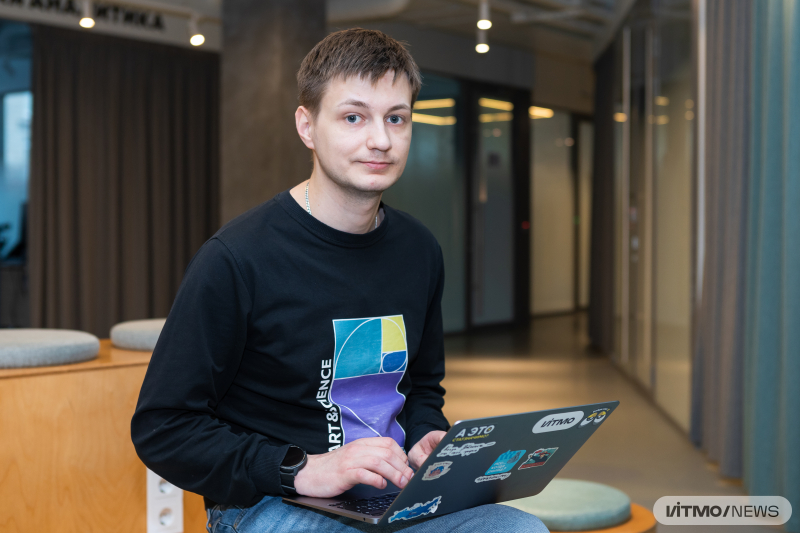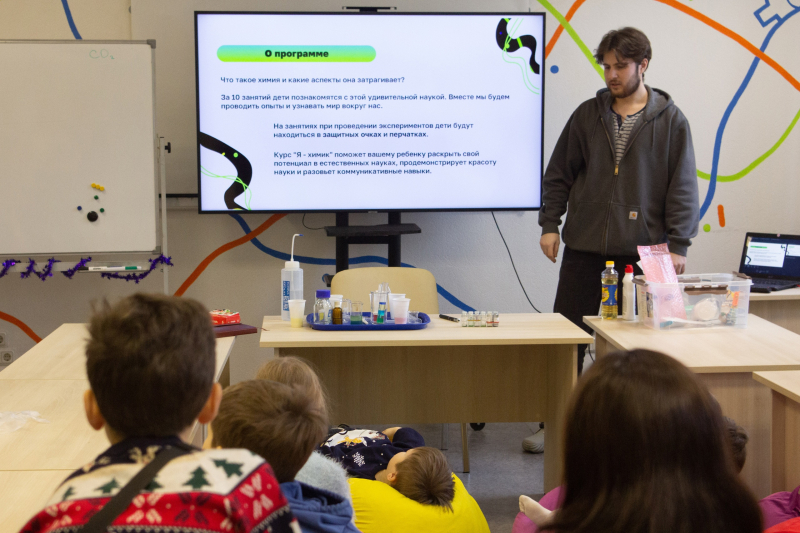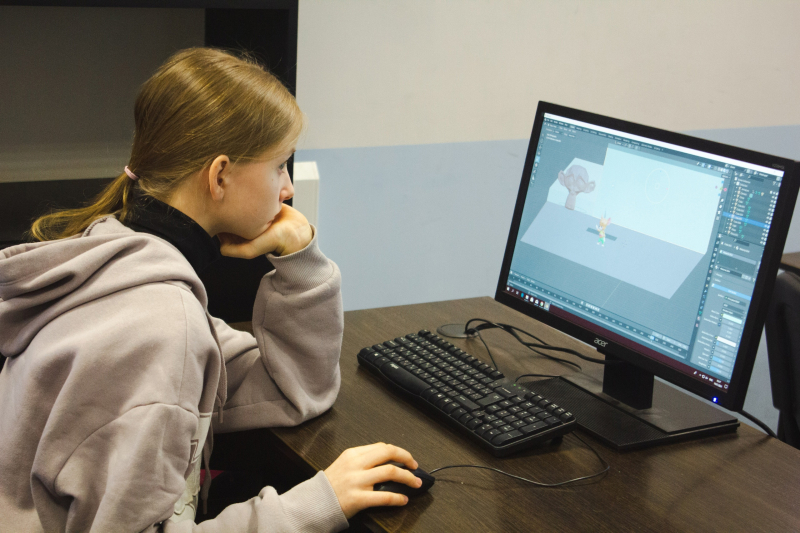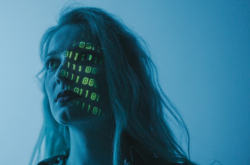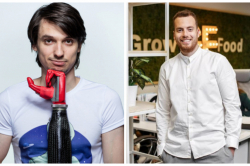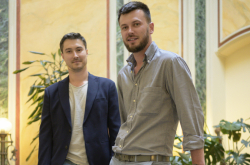You’ve recently won the Leaders of Russia competition. Why did you decide to participate?
I did it to test myself. I tend to constantly question my choices and abilities. Although this helps me grow, this feeling can also cause apathy and anxiety. This competition was my opportunity to take an objective look at myself and receive feedback from experts and my fellow participants.
What was the competition like? What was most memorable for you?
Applications are open to anyone, so this is a very competitive event: this year, there were 160,000 applicants. There are several rounds in the contest. The first one takes place online and includes tests in management skills and Russian. Then comes the regional round: over two days, I, among the other 342 participants, solved cases in front of assessors. Eventually, 37 participants from our region proceeded to the superfinals.
There, I became one of the 102 winners from among 302 participants, who came from all over the country. In this round, we also solved various cases, such as devising a development strategy for a small town, taking into account its location and infrastructure. I was surrounded by very capable candidates, heads of companies, constructors, and entrepreneurs.
Every superfinals participant receives a million-ruble grant for studies, as well as a chance to meet with the country’s leading managers: representatives of the government, business, major international companies, governors, mayors, and others.
How are you planning to use the money? Are you going to study some more?
Yes, but I haven’t yet decided on the program. The most popular programs for this grant are MBA and Master of Public Administration. I am choosing between the International Management Institute of St. Petersburg and the Skolkovo Moscow School of Management.
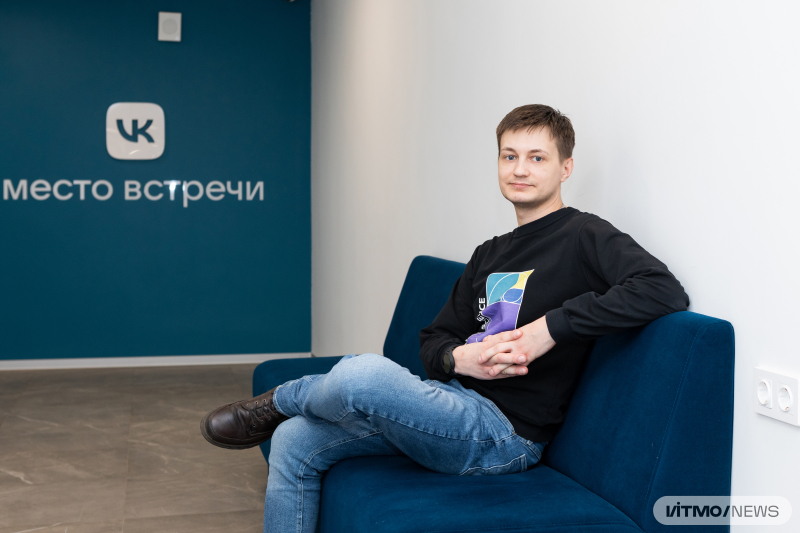
Alexey Schekoldin
What did you gain in the competition as a leader? Were your expectations met?
This competition gave me at least 300 wonderful friends and colleagues, confidence in my abilities, and a great start for further growth thanks to feedback at every stage.
In the coming year, I’d like to start studying in the program of my choice and structure my goals and plans. I also want to choose a few fields for growth and try participating in projects within these fields. First of all, I want them to be socially oriented: I want to help people, share my knowledge, and contribute to large-scale projects that will change lives.
At the same time, you continue working at Sferum. What are your responsibilities there?
I work in product management. Sferum is a service for educational communications that receives support from the Ministry of Digital Development, Communications and Mass Media and the Ministry of Education. It’s a closed environment within VK, where teachers, parents, and students can communicate. My responsibilities are related to product development: I select directions for growth, analyze the market and various decisions we can incorporate; I also make these decisions, evaluate risks, compile paperwork, set tasks for developers, and manage development and hypothesis testing.
This isn’t your first children-oriented project. Before that, you worked at ITMO, where you founded a children’s technopark and became one of the founders of FabLab. How did you benefit from this experience? What projects are you particularly proud of?
I am proud of both of these initiatives because they have a social effect. We created FabLab with my friends and other enthusiasts in order to give students of all fields and universities access to high-tech equipment, to motivate them to develop skills in technological creativity. And I believe that we succeeded. At first, students came to us just to try using 3D printers, 3D scanners, and laser engravers, and then we started seeing more conscious youngsters who were working on their startups. Now, as far as I know, students of several faculties have classes at FabLab. I am very proud that we were able to create such a point of attraction for all the enthusiasts in town who are developing their projects.
The technopark for kids was also a social project. Back then, I didn’t know what I wanted to be when I grew up – by the way, I still don’t know that – but I really wanted to help children choose their future career. And I believe this can be done only by trial and error. ITMO.KIDS is an accessible opportunity to try yourself in different fields: IT, design, biology, and other sciences. Children try something and see what they like; then, they can make decisions based on their own experience.
The experience I got developing this project came in really handy during the competition: the skills related to designing development strategies, analyzing the market, managing staff and projects – they give you the foundation needed to solve nearly any problem. I also regularly draw from my experience at ITMO in general – for instance, I use my understanding of moderating and facilitating group communication at work and in personal communication.
Speaking about choosing your career… You are an ITMO graduate and your first degree was in electrical engineering. Why did you decide to try yourself in different fields? How did you start producing your own projects? And why did you decide to make them for kids?
That’s an interesting story. As a Bachelor’s student, I studied engines and developed control systems for them. When I started developing FabLab in my fourth year, I realized that I was lacking entrepreneurial and soft skills. That’s why I decided to study innovations economy as my Master’s degree. We studied project economy, learned to build businesses, and evaluated startups. After that, I knew that soft skills are cool, but I wanted to go back to engineering sciences. So, for my PhD I returned to the Faculty of Control Systems and Robotics, where I studied control in technical systems. As a result, my education gave me a deep engineering background with good management skills.
Later, I studied in the presidential program for administrative staff at the Higher School of Economics. There, I acquired very specific skills in management, economics, and business administration.
Now I am developing projects for education. I think that projects for kids are something like my social mission. My mother is a teacher and I am good with kids. I often take part in social projects connected to education and sharing knowledge and skills. I think that mentorship is an important element in the life of every person: if you learned something, this knowledge isn’t worth much if you are not using it or sharing it with others.
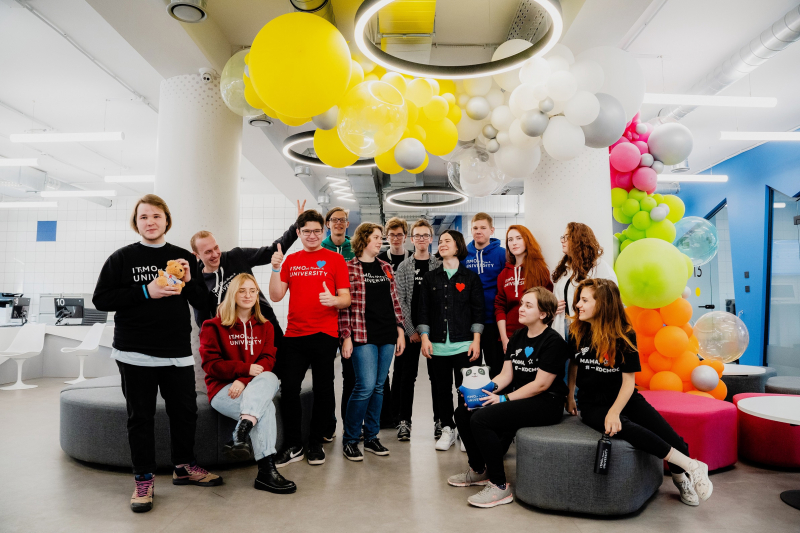
ITMO students at the Student Services Office. Photo by ITMO.NEWS
Do you maintain your connections to ITMO now? What did the university give you?
ITMO is first and foremost my alma mater, it will always have a place in my heart. By the way, I still have the pixel heart keychain that was once very popular at the university. I am still in touch with my former supervisors and colleagues at ITMO and I really value the social connections I’ve shaped throughout my life.
The second valuable thing I got at ITMO is the skill to learn. We live in a world where your age isn’t determined by a number in your ID, but by your ability to learn and quickly adapt to new environments. In this sense, the university equips us with not so much specific knowledge, but the ability to look for information.
For me, ITMO has always been about people and love, and I hope that these values still make up the DNA of every student and member of staff.
